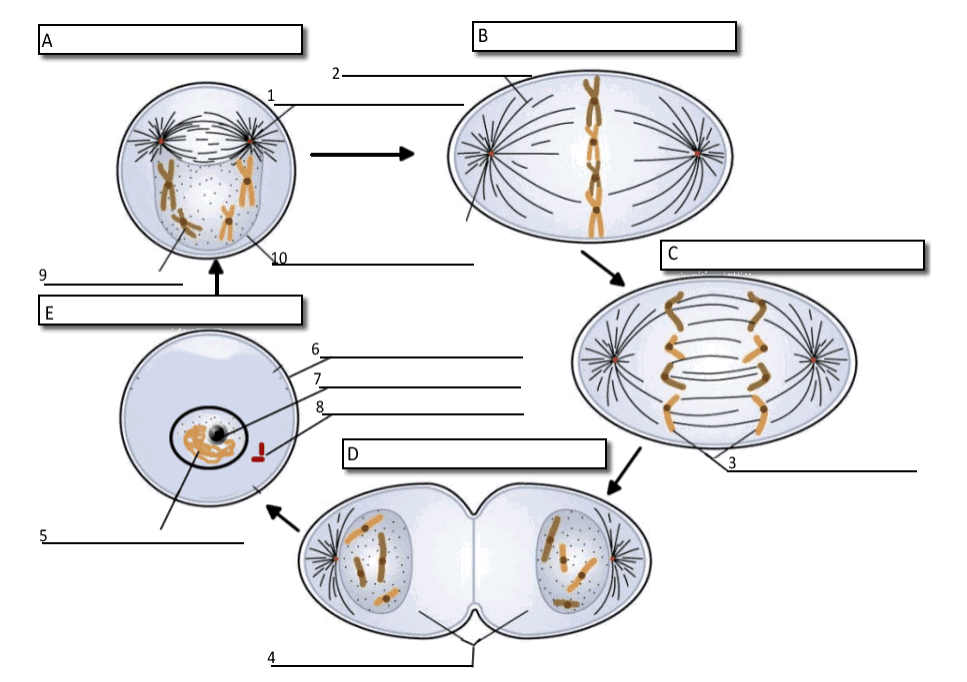
Cell Cycle Labeling Biology LibreTexts
An Overview of the Cell Cycle - Molecular Biology of the Cell - NCBI Bookshelf The most basic function of the cell cycle is to duplicate accurately the vast amount of DNA in the chromosomes and then segregate the copies precisely into two genetically identical daughter cells. These processes define the two major phases of the cell cycle.

101 Diagramss of a Cell 101 Diagrams
Cell Cycle Labeling. Students label the image of a cell undergoing mitosis and answer questions about the cell cycle. The main phases are shown: interphase, prophase, metaphase, anaphase, and telophase. I use the I-P-M-A-T as a memory device, though NGSS does not specifically state that students need to know the phases, it's not difficult for.
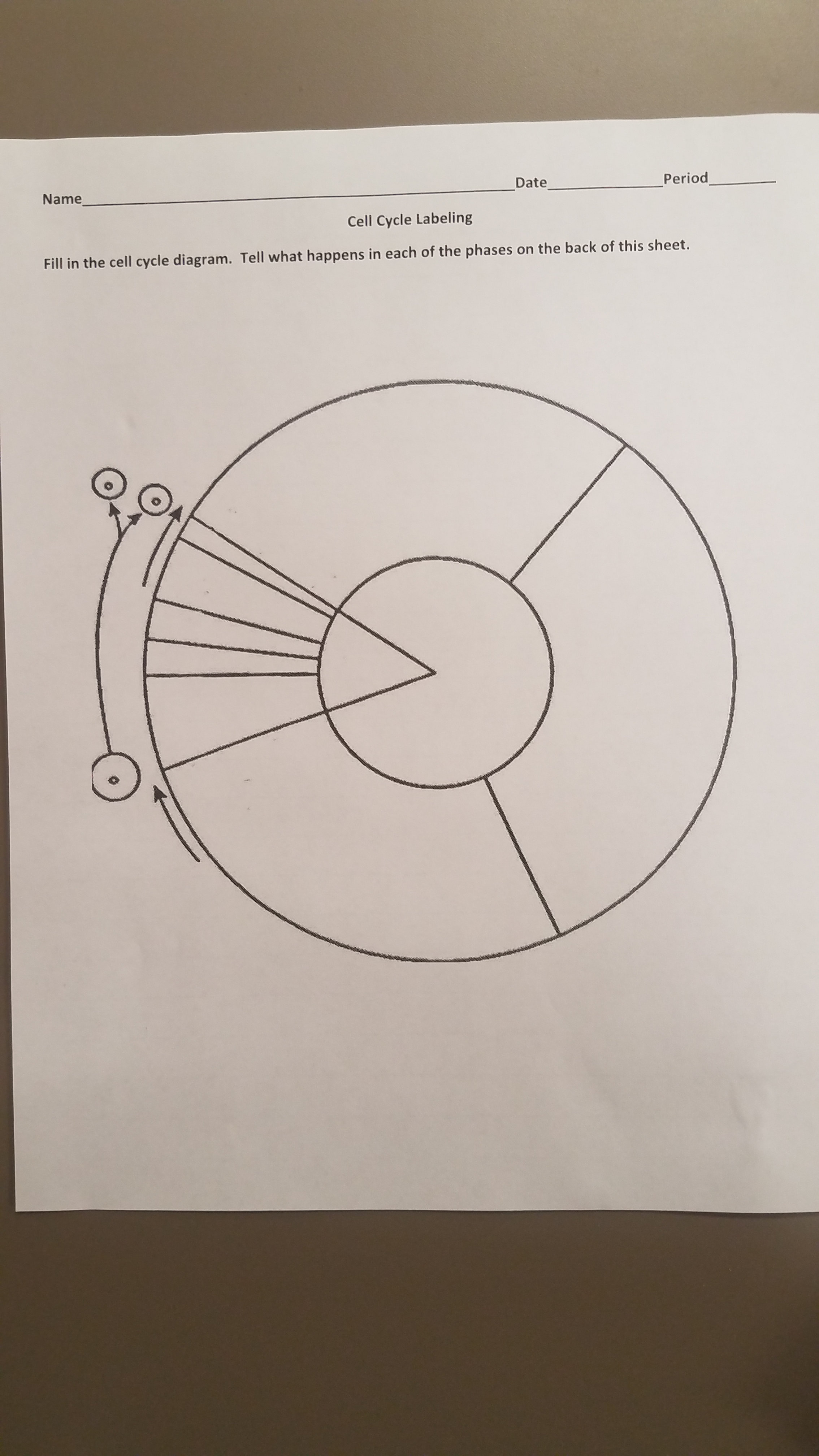
Cell Cycle Labeling
19. In the cell pictured above, how many chromosomes are present during prophase? ___ 4 ____. 20. What structure holds the individual chromatids together? ____ centromere ______. Answer key for mitosis labeling worksheet showing the phases of mitosis: interphase, prophase, metaphase, anaphase, telophase.

Cell Cycle Checkpoints Biology for Majors I
Image shows the stages of the cell cycle, interphase, prophase, metaphase, anaphase, and telophase and asks students to name the phase and identify major structures such a centrioles and chromatids. Questions about mitosis follow the image labeling.

Labeled Diagram Of The Cell Cycle Diagram Pinterest School, Life science and Science cells
The cell cycle is divided into several phases; the length of these particular cell cycle phases is an important characteristic of cell life. The progression of cells through these phases is a highly orchestrated process governed by endogenous and exogenous factors.. Continuous labeling based on cell number of the labeled cells.
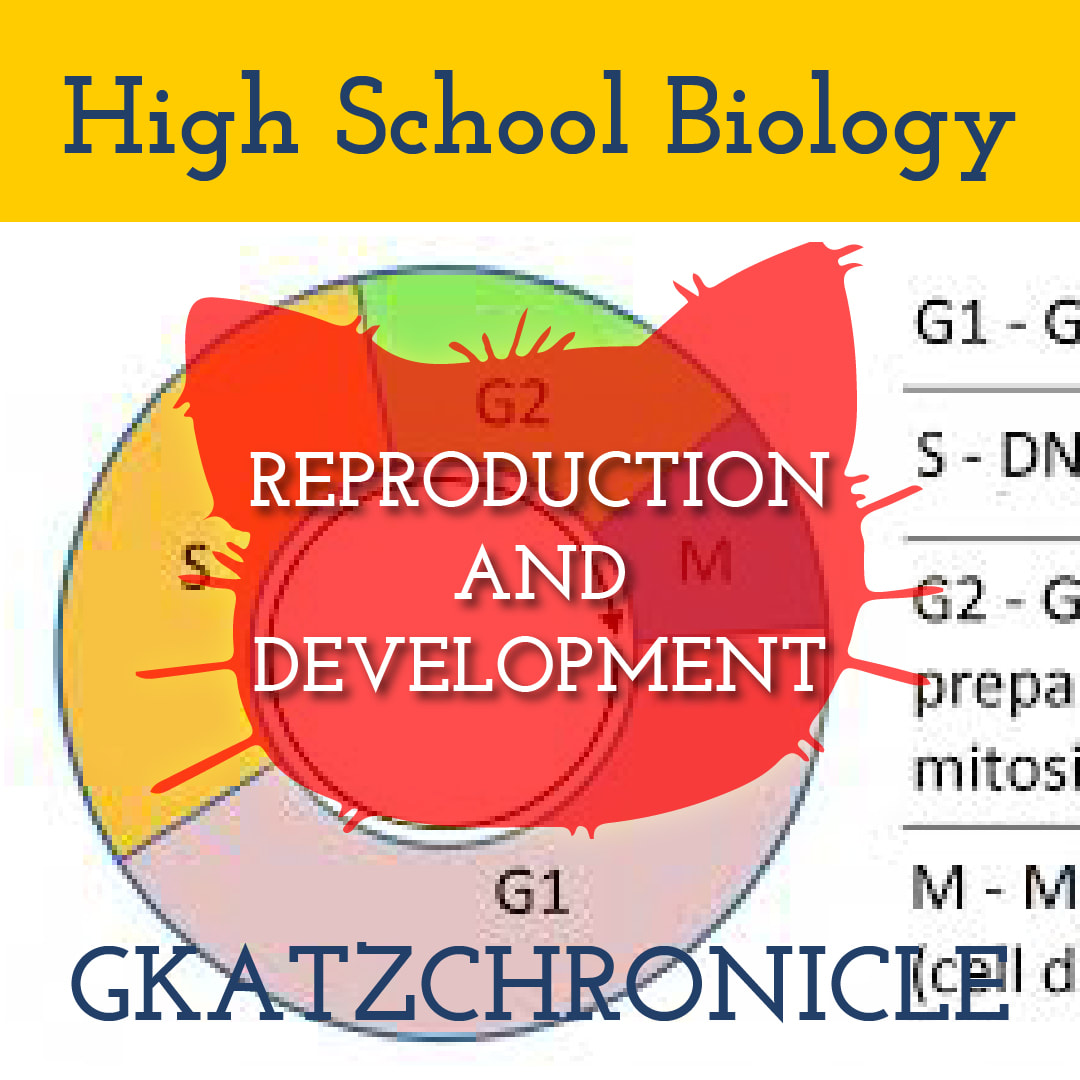
Cell Cycle Labeling
The cell cycle is made of two main phases: the interphase and the mitotic phase. Interphase has 3 sub-phases: G 1 that prepares the cell for the S phase, S phase replicates DNA, and G 2 which prepares the cell for cell division during the mitotic phase. The mitotic phase has mitosis and cytokinesis.
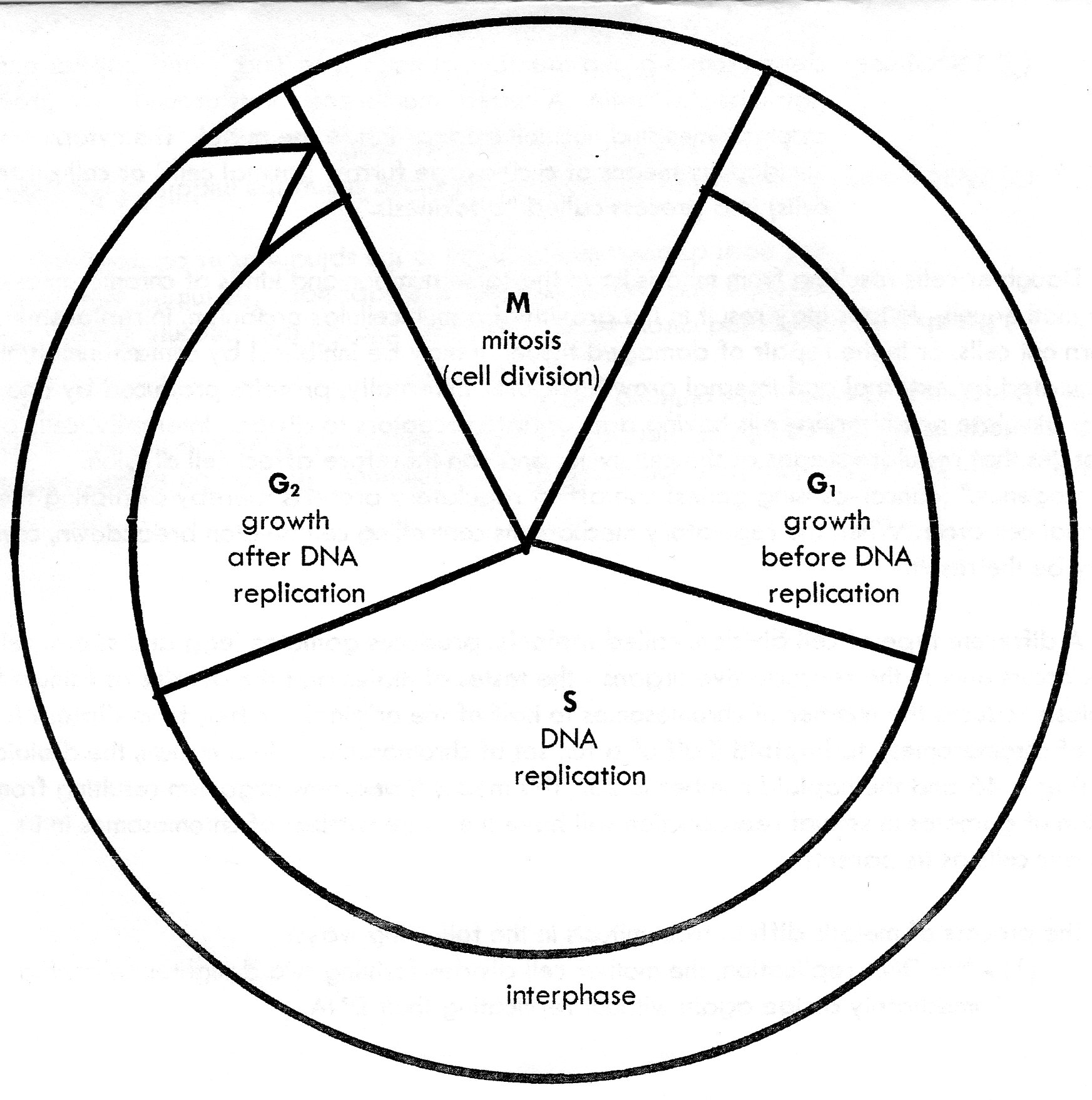
Cell Cycle Diagram ClipArt Best
Cell Cycle Labeling. 1. Identify the phase of each and write the complete name in the box. 2. Match the following structures on the diagram: 3. What is the diploid number of the original cell? _______ (how many chromosomes does it have?) What is the diploid number of the daughter cells?
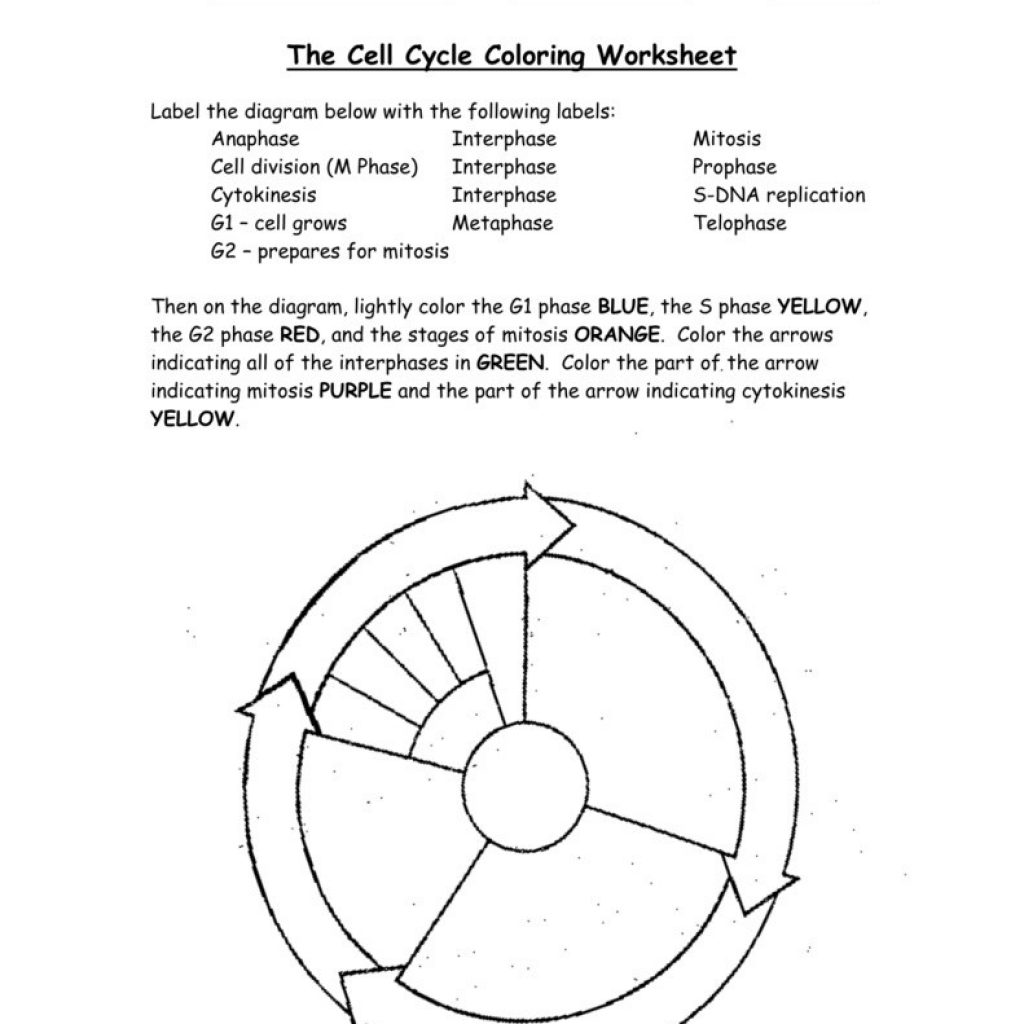
Cell Cycle Drawing Worksheet at GetDrawings Free download
The cell cycle has two major phases: interphase and the mitotic phase (Figure 6.2.1 6.2. 1 ). During interphase, the cell grows and DNA is replicated. During the mitotic phase, the replicated DNA and cytoplasmic contents are separated and the cell divides. Figure 6.2.1 6.2. 1: A cell moves through a series of phases in an orderly manner.
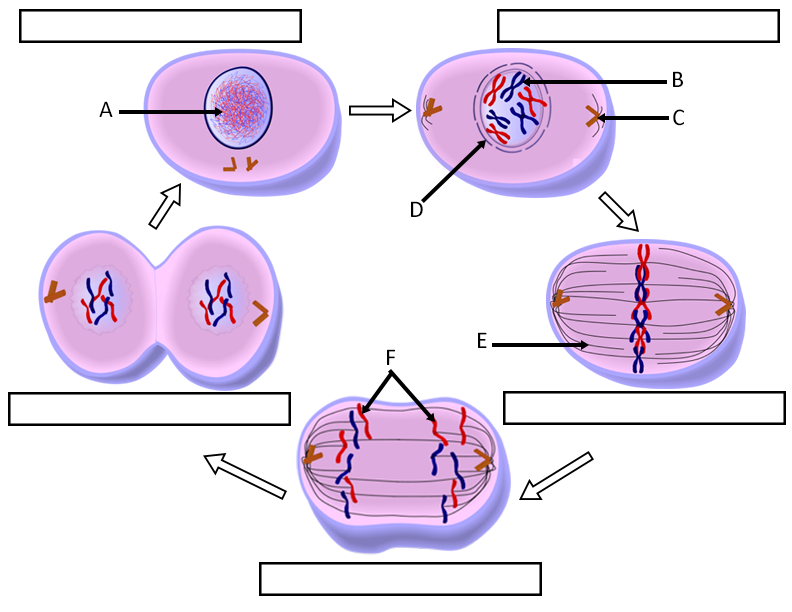
Cell Cycle Labeling
In the cell pictured above, how many chromosomes are present during prophase? What structure holds the individual chromatids together? Cell Cycle Labeling is shared under a not declared license and was authored, remixed, and/or curated by LibreTexts.
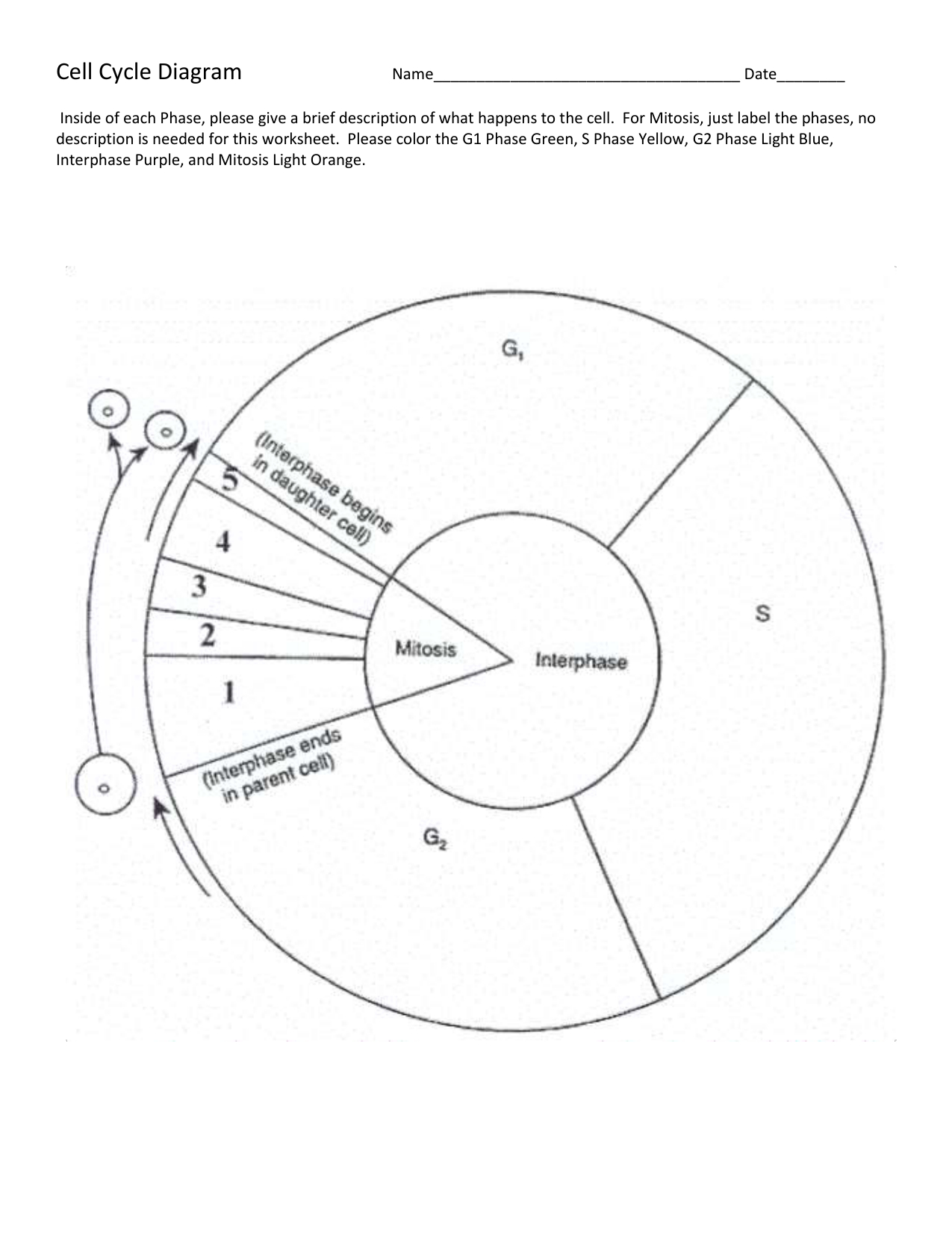
Cell Cycle Labeling Worksheet —
The following points highlight the four major phases of the cell cycle. The phases are: 1. G 1 (gap1) phase 2. S (synthesis) phase 3. G 2 (gap 2) phase 4. M (mitosis) phase. Cell Cycle: Phase # 1. G 1 Phase: . The G 1 phase is set in immediately after the cell division. It is characterised by a change in the chromosome from the condensed mitotic state to the more extended interphase state and.

Cell cycle labelling. Schematic representation of the cell cycle and... Download Scientific
The cell cycle is an ordered series of events involving cell growth and cell division that produces two new daughter cells. Cells on the path to cell division proceed through a series of precisely timed and carefully regulated stages of growth, DNA replication, and division that produce two genetically identical cells.
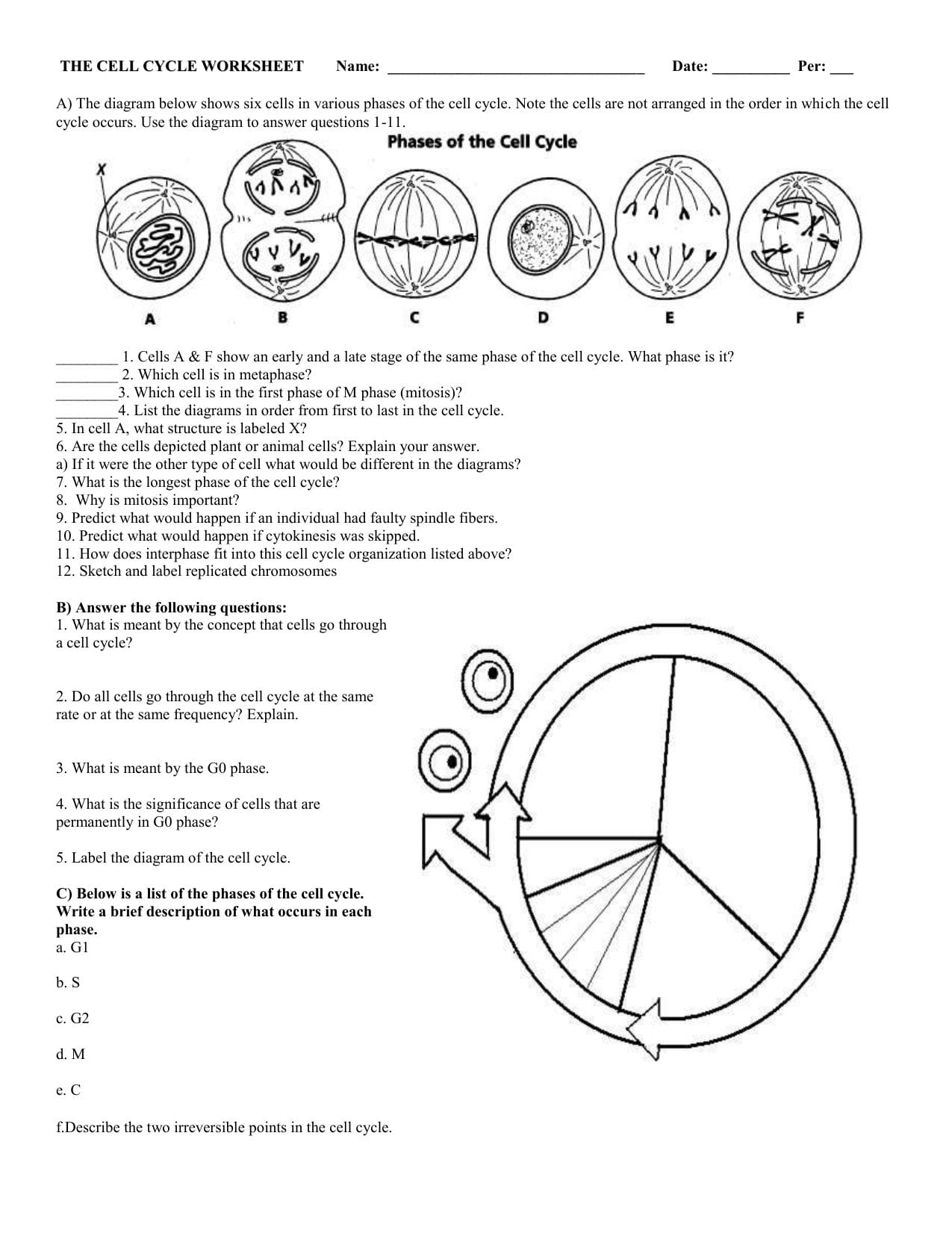
The Cell Cycle Worksheet —
Mitosis is a type of cell division in which one cell (the mother) divides to produce two new cells (the daughters) that are genetically identical to itself. In the context of the cell cycle, mitosis is the part of the division process in which the DNA of the cell's nucleus is split into two equal sets of chromosomes.

Cell Cycle Diagrams 101 Diagrams
A cell cycle is thus a sequence of events that a cell goes through as it grows and divides to produce new cells. Therefore, it can be called the life cycle of a cell. is responsible for a newborn baby gradually growing into an adult. Similarly, a caterpillar turning into a butterfly.

Introduction to Cell Cycle Division Phases
Interphase consists of three steps: G 1 phase: first gap phase; the cell grows larger and organelles are copied S phase: synthesis phase; the cell synthesizes a complete copy of the DNA in its nucleus G 2 phase: second gap phase; the cell grows more, makes proteins and organelles, and begins to reorganize its contents in preparation for mitosis
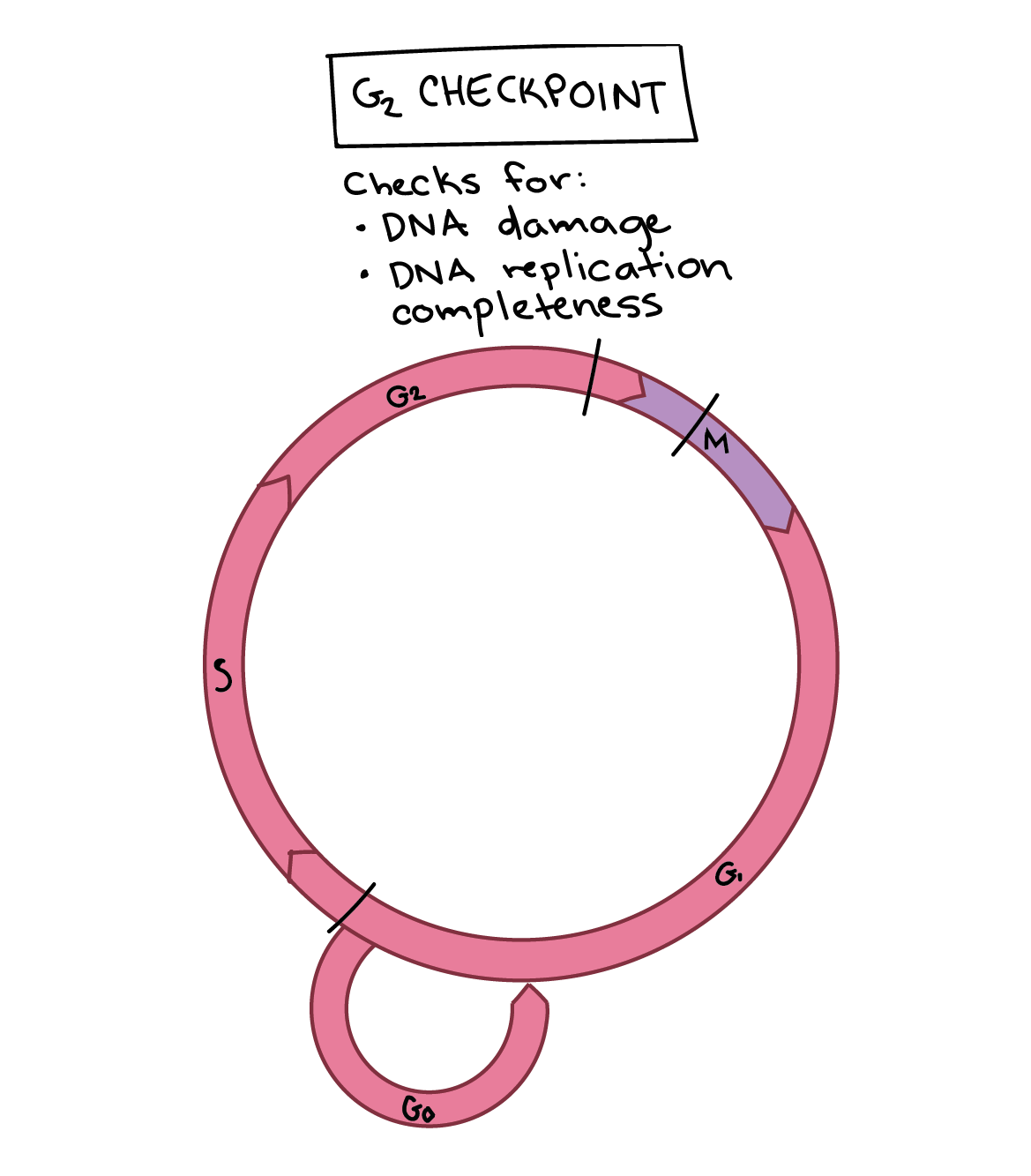
S Phase Of Cell Cycle Drawing BHe
The nuclear envelope breaks down, centrioles begin to move to opposite poles, and spindle fibers form. Spindle fibers attach to each chromosome. along the cell equator. to opposite sides of the cell. begin to uncoil, and the spindle fibers fall apart. nucleus. The cells enter. the cycle again. enjoy Learn with flashcards, games, and more.
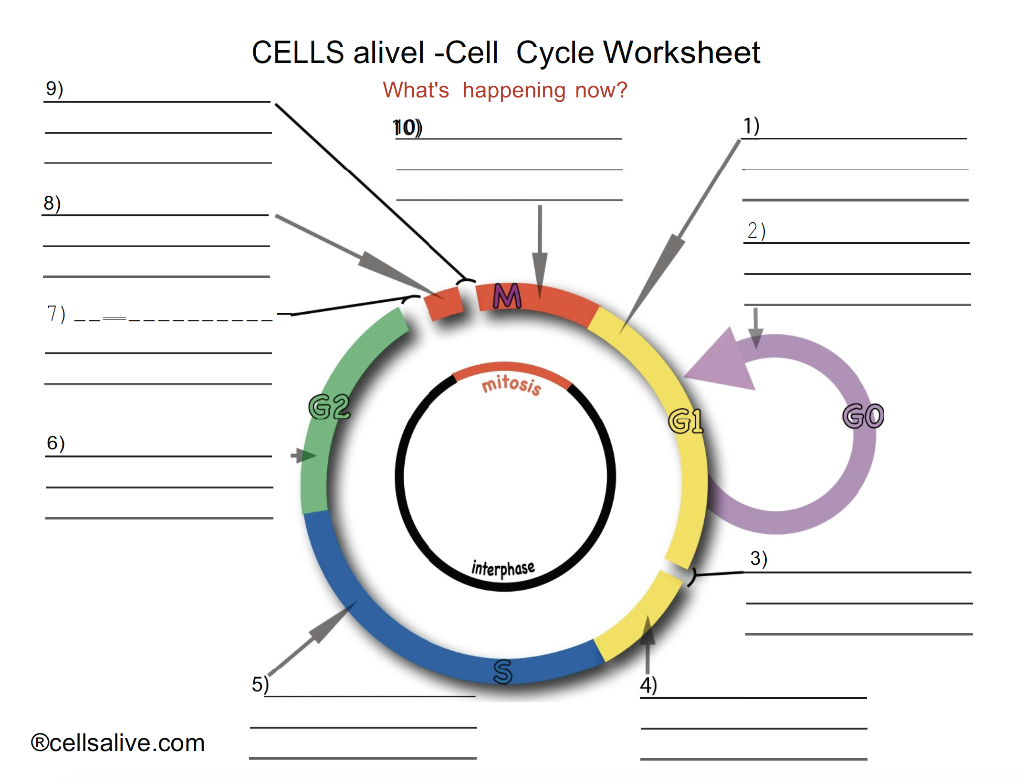
Solved CELLS alivel Cell Cycle Worksheet What's happening
Introduction In the article on cell cycle checkpoints, we looked at the why of cell cycle transitions: the factors that a cell considers when deciding whether or not to move forward through the cell cycle. These include both external cues (like molecular signals) and internal cues (like DNA damage).